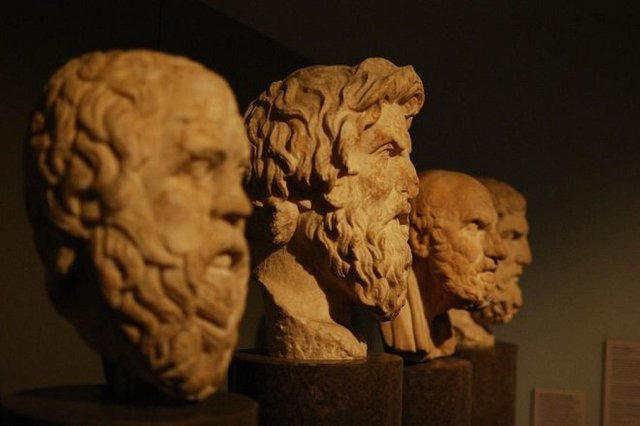Ancient philosophy. Life and creativity of Socrates. /part 8/
Others, while looking at the Nous from a theological point of view, consider that Anaxagoras introduces the "Bedriff des Geistes" into the philosophy, and in this is his constant merit. For his part, however, Socrates logically consistently criticizes the doctrine of the Nous of Anaxagoras, revealing that, in any case, teleological, but purely physical or physiological reasons for explaining phenomena in nature are used. Aristotle also reproaches Anaxagoras, indicating that he resorted to "Nous" only when his or her philosophical system has difficulty, and the other causes prove to be insufficiently justified.
Socrates, Plato, and Aristotle see the main disadvantage of Anaxagoros' teachings that "Nous" only gives the "first impetus" to the primordial state of the world, thus bringing it into motion and order. Anaxagor says: "God was, He is and will be; He rules everything and dominates everything. Being Reason, He brought into order all the countless things that were previously mixed.. The Divine Mind of Anaxagoras acts in the cosmogonic process only as the so-called "first impetus" of the resting world, which begins the movement and movement of everything that exists, but later it is missing in the explanation of the dynamics and evolution of the cosmos /. The picture of the world in Anaxagor is mechanistic, and his teachings are a kind of deism, and that is not exactly what Socrates satisfies. But is it possible for our limited knowledge of the phenomena of nature to make sense of its structure?
Speaking of the expediency of nature, are we not often attributed to misleading purposes, and is the very notion of objectives purely subjective? From Socrates' point of view it was sufficient to bring only some expedience in nature to reveal in it the presence of a reasonable and therefore unconditionally reasonable Home, since the principle of each purpose is reason, but the beginning of every reason is unconditional and universal Reason. In fact, Socrates (according to Xenophon) brings examples of rational phenomena from nature, in which the inner expedience is obvious and inexplicable as a result of blind chance or mechanical causation. Above all, Socrates refers to psychological phenomena: senses and sensory organs, sensory perceptual system with external objects, colors, sounds, smells and tastes adapted to the perception. They could not be formed by chance, they arise on their own, and the first thing that affects the mind of their structure is their inner and outer expediency, as well as the wisdom of their psychophysical structure.
Thus, for example, the eye, in all its great complexity, is created in its form in the form of vision - an internal, mental act; on the other - it is an optical apparatus arranged according to the nature of physical light. S
